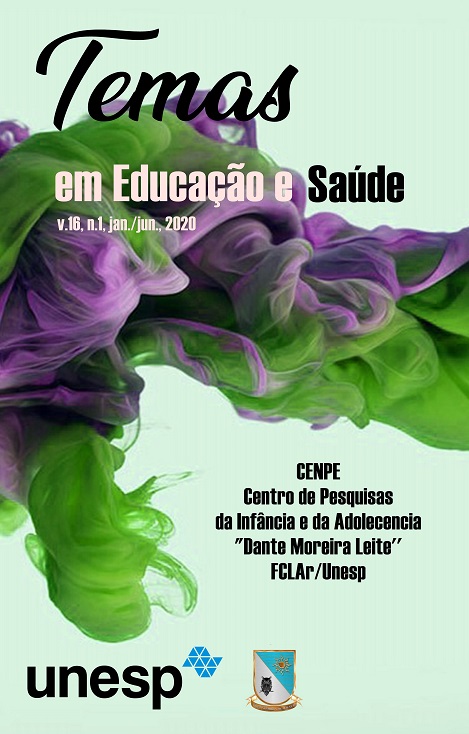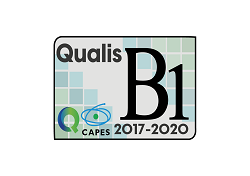Educación Sexual, CT&i: un breve estudio teórico y una propuesta de aplicación
DOI:
https://doi.org/10.26673/tes.v16i1.13532Palabras clave:
Educación sexual, CT&i, Educación sexual científica.Resumen
El problema de este estudio, que sigue siendo un estudio inicial e incipiente, es la posibilidad de aproximar la educación sexual a los supuestos de CT & i. Se propone un plan de estudios para la educación escolar y para espacios no escolares que nace no solo de la investigación y producción en el área de Educación Sexual, sino que se expande para reflejar y producir teorías sobre la "industria de la sexualidad", con innovaciones y tecnologías científicas resultantes del avance de la información computarizada. En esta propuesta, se elabora un concepto provisional de "Educación Sexual Científica" (ESC), que, en su proyecto inicial, pretende configurarse en la línea de la Alfabetización Científica. Con una metodología basada en la bibliografía, el problema de investigación se responde en dos frentes: el primero, que lleva el área de Educación Sexual a CT&i desde la Epistemología de la Ciencia. En el segundo frente, proponer una metodología en las aportaciones de la Alfabetización Científica. Uno de los principales resultados es el campo de desafíos que se abren para un proyecto ESC teórico y metodológico, por ejemplo, digisexualidad, nuevas tecnologías "robosexuales", plataformas sexuales digitales, con juegos y "sentidos" promovidos por la industria. , confiando en la ciencia de la sexualidad humana y atendiendo al bienestar de sus usuarios individuales y colectivos. La conclusión principal es la posibilidad positiva (y "arriesgada") de esta aproximación de la educación sexual con CT & i, especialmente en su complementariedad con el aspecto emancipatorio de la sexualidad humana utilizada en las ciencias de la educación.Descargas
Citas
ALVES, R. Filosofia da ciência. Introdução ao jogo e suas regras. São Paulo: Brasiliense, 1981.
ANELLI, C. Scientific Literacy: what is it, are we teaching it, and does it matter? American Entomologist, v. 57, n. 4, p. 235-244, 2011. Disponível em: http://entomology.wsu.edu/wp-content/uploads/2012/02/Anelli2011scientific-lit.pdf. Acesso em: 29 mar. 2020.
ASIMOV, I. Eu, robô. São Paulo: Aleph, 2014.
BEEDE, D. et al. Women in STEM: a gender gap to innovationation. U.S. Department of Commerce, Economics and Statistics Administration, ago. 2011.
CHASSOT, A. Alfabetização Científica – Questões e Desafios para a Educação. Ijuí: Editora da Unijuí, 2017.
DAVIS-FLOYD, R.; DUMMIT, J. (Ed.). Cyborg babies: from techno-sex to techno tots. New York: Routledge; 1998.
FOUCAULT, M. História da sexualidade I. A vontade de saber. 13. ed. Rio de Janeiro: Graal, 1988.
HALL, A. R. The historical relations of science and technology. London: Inaugural Lecture, 1963.
HURD, P. D. Scientific literacy: new mind for a changing world. Science & Education. Stanford, USA, v. 82, n. 3, p. 407-416, 1998. Disponível em: https://eric.ed.gov/?id=EJ565751. Acesso em 30 mar. 2020.
LATOUR, B. Jamais fomos modernos. São Paulo: Ed. 34, 1994.
LATOUR, B. Ciência em ação. São Paulo: Ed. Unesp, 2000.
LATOUR, B. A esperança de Pandora: ensaios sobre a realidade dos estudos científicos, Bauru: Edusc, 2001.
MCARTHUR, N.; TWIST, M. L. C. The rise of digisexuality: therapeutic challenges and possibilities. Sexual and Relationship Therapy, v. 32, n. 3-4, p. 334-344, 2017. Disponível em: https://www.tandfonline.com/doi/abs/10.1080/14681994.2017.1397950. Acesso em 30 mar. 2020.
MORIN, E. Ciência com consciência. 8. ed. Rio de Janeiro: Bertrand Brasil, 2005.
PARKER, R.; AGGLETON, P. Culture, society and sexuality: a reader. 2. ed. New York: Routledge, 2007.
PORTER, R.; TEICH, M. Conhecimento sexual, ciência sexual. História das atitudes em relação à sexualidade. São Paulo: Editora Unesp, 1998.
ROGERS, E. M. Diffusion of innovations. 5. ed. New York: The Free Press, 2003.
RUSSETT, C. E. Sexual Science. The Victorian Construction of Womanhood. Cambridge: Harvard University Press, 1995.
SAMPIERI, R. H.; COLLADO, C. F.; LUCIO, M. P. B. Metodologia da pesquisa. 5. ed. Porto Alegre: Artmed, 2006.
SASSERON, L. H. Alfabetização científica no ensino fundamental: estrutura e indicadores deste processo em sala de aula. 2008. 261 f. Tese (Doutorado em Educação) - Faculdade de Educação da Universidade de São Paulo, São Paulo, 2008.
SCUTT, J.A. Baby machine reproductive technology and the comercialisation of motherhood. London: Green Print; 1990.
WIEZENBAUM, J. Computer power and human reason. San Francisco: Freeman, 1976.
Publicado
Cómo citar
Número
Sección
Licencia
Os manuscritos aceitos e publicados são de propriedade da Temas em Educação e Saúde. Os artigos publicados e as referências citadas na Temas em Educação e Saúde são de inteira responsabilidade de seus autores. É vedada a tradução para outro idioma sem a autorização escrita do Editor ouvida a Comissão Editorial.







